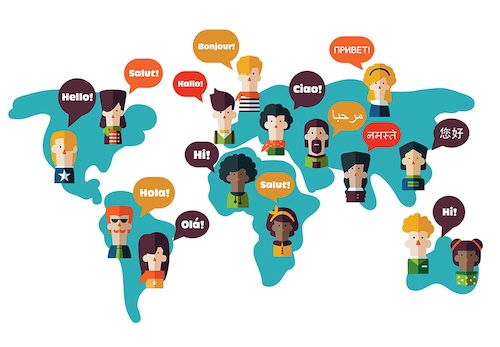
The Power of Storytelling in Strengthening Relationships: Why a Custom Story Means So Much
September 7, 2024
A Journey Through Time: The History of Missouri from the Louisiana Purchase to Present Day
September 9, 2024The Benefits of Being a Polyglot
A polyglot is someone who speaks multiple languages. While many people only speak their native language, some people are able to learn and speak two, three, or even more languages fluently. There are many benefits to being a polyglot, both personal and professional.
Personal benefits of being a polyglot:
- Improved cognitive function: Learning and speaking multiple languages can help to improve your cognitive function, including your memory, attention and problem-solving skills.
- Increased cultural awareness: Learning a new language gives you a window into a new culture. You can learn about the culture’s history, values, and customs through its language.
- Expanded travel opportunities: If you speak multiple languages, you can travel to more places and communicate with more people. This can make your travels more enjoyable and rewarding.
- New friendships: Learning a new language can help you to make new friends from all over the world. You can connect with people who share your interest in languages and culture.
Professional benefits of being a polyglot:
- Increased job opportunities: Being a polyglot can make you more competitive in the job market. Many employers are looking for workers who can speak multiple languages, especially in fields such as business, education and healthcare.
- Higher salary: Studies have shown that polyglots typically earn more money than monolinguals.
- Better career advancement opportunities: Being a polyglot can help you to advance your career more quickly. Employers are often more likely to promote polyglots to positions of responsibility.
How to become a polyglot:
If you are interested in becoming a polyglot, there are a few things you can do:
- Start with a language that you are interested in. This will make the learning process more enjoyable and motivating.
- Find a language learning method that works for you. There are many different language learning methods available, such as books, apps and online courses. Experiment until you find a method that you enjoy and that helps you to learn effectively.
- Be consistent with your studies. The best way to learn a new language is to practice regularly. Set aside some time each day to study, even if it’s just for 15 minutes.
- Don’t be afraid to make mistakes. Everyone makes mistakes when they are learning a new language. It’s part of the process. Don’t let your fear of making mistakes prevent you from practicing and learning.
- Immerse yourself in the language as much as possible. One of the best ways to learn a new language is to immerse yourself in it as much as possible. This means surrounding yourself with the language as much as you can. You can do this by watching movies and TV shows in the language, listening to music in the language, and reading books and articles in the language.
Learning a new language can be a challenging but rewarding experience. By following the tips above, you can become a polyglot and enjoy all of the benefits that it has to offer.
Here are some additional thoughts on the benefits of being a polyglot:
- Polyglots are more creative and innovative. Studies have shown that polyglots are more likely to be creative and innovative than monolinguals. This is because polyglots are able to think outside the box and come up with new ideas more easily.
- Polyglots are more empathetic. Polyglots are better able to understand and empathize with people from different cultures. This is because polyglots have a deeper understanding of different cultures and perspectives.
- Polyglots are more adaptable and resilient. Polyglots are better able to adapt to new situations and overcome challenges. This is because polyglots are used to thinking outside the box and coming up with new solutions.
If you are looking for a way to improve your life personally and professionally, learning a new language is a great option. Becoming a polyglot can help you to achieve your goals and live a more fulfilling life.
Written by Google Bard




